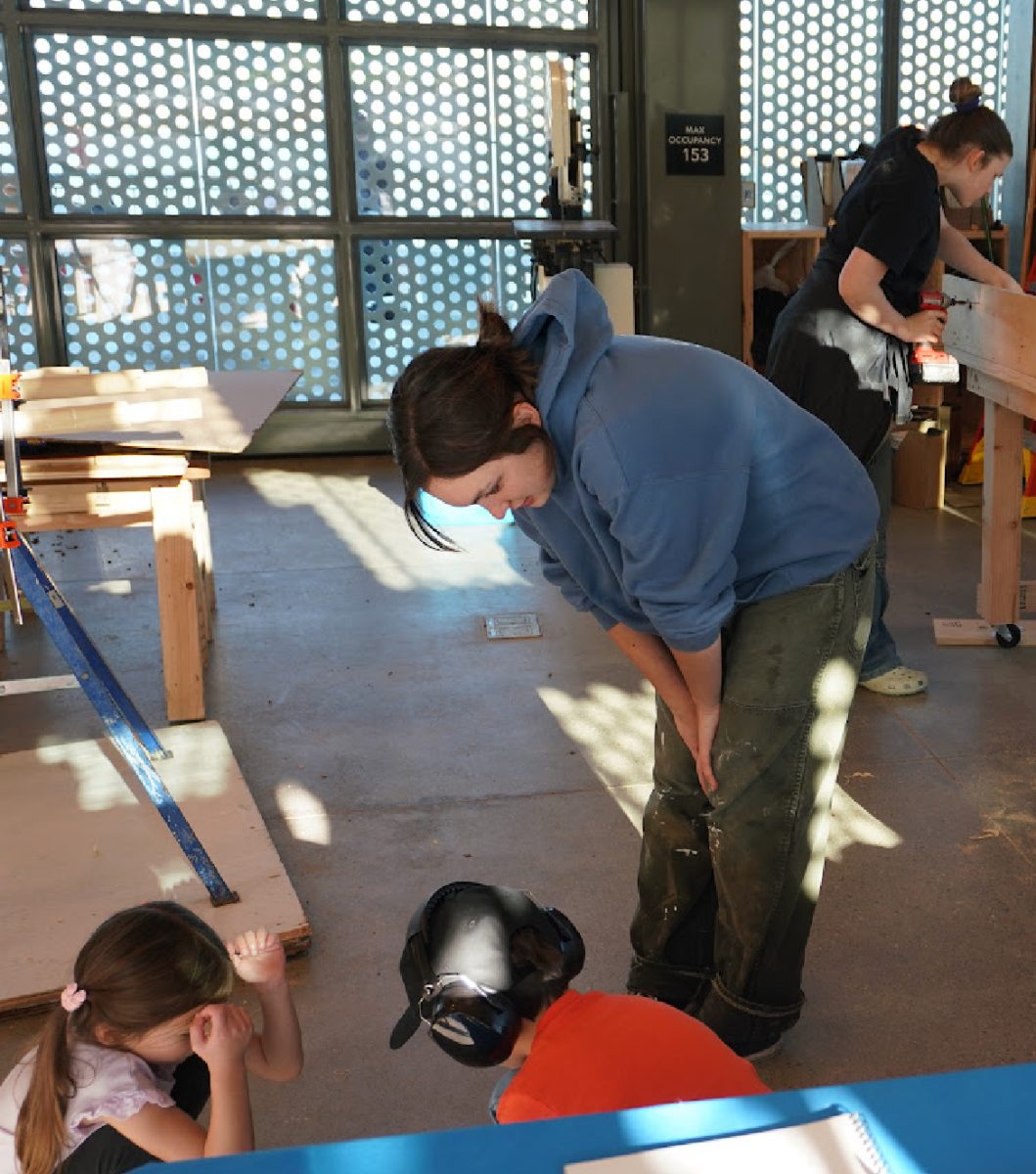San Francisco holds its fourth annual Women’s March, draws voices before the 2020 election
January 20, 2020
On Jan. 18, feminist anthems echoed through the streets of San Francisco, accompanying the rallying cries of pink-clad protesters from all around the Bay Area. Signs decorated with wordplay and artwork filled the skies and flooded the Civic Center Plaza where the fourth annual Women’s March commenced. From 11 a.m. to 1:30 p.m., thousands gathered in front of City Hall for the rally preceding the march. The sun shone brightly on the square as motivational speakers and the San Francisco cast of “Hamilton” electrified the crowd, ending when the marchers began their estimated 1.7-mile trek to the Ferry Building.

The Women’s March occurs every January worldwide, with the most famous, central march taking place in Washington DC. According to the website of the Women’s March Organization, the march’s mission is to “unify and empower everyone who stands for human rights, civil liberties, and social justice for all.” This year in San Francisco, the theme was “Together We Rise!”— a nod to the upcoming election.
Sophomore Helena Janku participated in the marches of 2017 and 2018 and was motivated to march for her third time as a result of America’s current, divided political climate.
“I just think, especially in a time of such political turmoil and uncertainty, it’s just so awesome to come together in a group of people where you are in a safe environment to express yourself,” Janku said.
2017 was the first year of the Women’s March. It was also the year President Trump was inaugurated and the #MeToo movement shook Twitter, Hollywood and society as a whole. Now, in 2020, President Trump is being tried for impeachment and Harvey Weinstein, the Hollywood mogul accused of numerous accounts of sexual assault, is on trial for rape.
The topic of what has changed in America since the first women’s march was touched on by both London Breed, the mayor of San Francisco, and Eleni Kounalkis, California’s first female lieutenant governor, in their rally speeches. Kounalkis emphasized the 2018 election and that for the first time in history five of California’s 10 elected state officers are female.

Tiffany Shlain, another speaker at the San Francisco march and past attendee of the march in D.C. is an author, activist, Emmy-nominated filmmaker and Redwood alumna. Like Janku, the approaching election impassions Shlian to speak out and march.
“There was a lot of energy after Trump first got elected and a lot of anger. Now a lot of women have been elected, and we need to really focus and gather this election year. [We need to keep our] eyes on the prize, which is to win this country back, get more women in office, more diversity in office and have our country realign with our values, because it feels very off course right now,” Shlain said.
Sophomore Eric Sunshine, a first-time attendee of the march, wanted to further his involvement and support for progressive campaigns. On top of the president’s term coming to an end, Sunshine was encouraged to protest after his sister and mother had participated in a march the previous year. Sunshine felt an immense sense of community through his own positive march experience.
“You feel really connected to everyone else, even though these [people] are strangers and you all have different organizations that you’re here for. But, it kind of feels like we’re all sort of here for the same reasons and a common goal that we’re all trying to achieve, and it’s very united,” Sunshine said.
This year is also Sunshine’s first term as a member of Redwood’s Daraja club, an organization centered on providing education for young girls in Kenya. Sunshine attended the march with the Redwood and Drake High School Daraja divisions, which were an official contingent at this year’s march. As a teenager, Sunshine believes it is important for fellow youth to be vocal about their beliefs because Generation Z is the next to vote.

“I think it’s really important for teens to be active in opportunities like this because we are the next generation. A lot of people that I know, like seniors and my older brother and his friends, they’re all voting this time around. So, it’s really important to get educated and to show support for candidates and organizations that you really believe in,” Sunshine said.
Shlain believes new voters hold immense power, and to create change the younger generation must be educated on what they value in policy and a candidate.
“Pick something that you really care about and focus your energy on it. Because there are so many issues right now, it can be overwhelming. But I think if you are focused, you can make great change happen,” Shlain said.
While the 2020 march had roughly 12,000 attendants, much less than that of the 100,000 that participated in 2017, Janku believes the number of participants does not diminish the march’s importance.
“[This year’s march was] was definitely smaller. The first year it was massive because it was coming off of Trump’s election. But the same spirit is still there. It may be smaller, but it’s still just as mighty and it’s so obvious that we’re still fighting for the same basic things. As time goes on and less changes are seen, it just gets more desperate and women get more empowered and it all just builds up over time,” Janku said.








